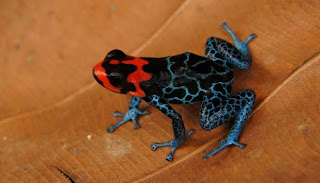Amazon yields 1,200 new species
 More than 1,200 new species of plants and animals have been discovered in the Amazon rainforest over the past decade according to a new report.
More than 1,200 new species of plants and animals have been discovered in the Amazon rainforest over the past decade according to a new report."Amazon Alive! A Decade of Discoveries 1999-2009," published yesterday by the World Wildlife Fund (WWF), showcases the extraordinary diversity housed in the world's biggest rainforest which spans eight South American countries.
Six-hundred-and-thirty-seven new species of plant were found during the period, as well as nearly 500 new fish and amphibians, including 24 new poison dart frogs.
Jim Leape, WWF international director general says: "This is report is really intended to bring home the richness of the Amazon forest and how much is there. The Amazon is the single most important place on Earth for biodiversity -- it holds ten percent of the world's known species."
The list of new discoveries amounts to more than the combined total of new species found in Borneo, the Congo Basin and the Eastern Himalayas during the same time period, the report says.
Nearly one fifth of the Amazon rainforest has been cut down in the past 50 years, Leape says. This is largely due to increased global demand for soya, beef and, more recently, biofuels.
"All of us in the choices we make everyday in our supermarkets are actually part of this picture," Leape said.
"On a more basic level, this is a place that stores perhaps more than 100 billion tons of carbon and it absorbs a lot of the carbon we put into the air. So it's hugely important to the future of the world's climate."
Governments from around the world are currently meeting at the United Nations biodiversity summit in Nagoya, Japan with the aim of setting new targets to stem eco-system loss.
(Via CNN)



Comments